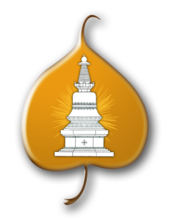Basic Program
The Basic Program
Kadampa Center plans to begin again, offering FPMT's Basic Program, taught by our resident teacher, Geshe Gelek. This program was designed by Lama Zopa Rinpoche for students who have completed basic levels of study and have a regular Buddhist practice to gain a profound knowledge of the key aspects of the entire Buddhist path.
The program is an intermediate-level exposition of nine main texts in the Tibetan tradition, meant to be taught over a period of approximately five years. Basic Program students study:
- Stages of the Path: the stages of the path to enlightenment of beings of low, middling, and great capacity
- Heart Sutra: emptiness and the phenomena qualified by it
- Engaging in the Bodhisattva Deeds: the six perfections – generosity, morality, patience, joyous effort, concentration, and wisdom – and how to practice them in everyday life
- Mahayana Mind Training (Wheel of Sharp Weapons): the law of actions and results, or karma, and the states of mind that shape our future experiences
- Sublime Continuum: the buddha or tathagata essence that exists within every sentient being
- Mind and Cognition: the way the mind knows phenomena and the mental factors that constitute the basis of our daily experience. This class will be taught in two segments: 1) Mind and Mental Factors and 2) Awarenesses and Knowers
- Tenets: the philosophical systems or tenets of the four main schools of ancient Buddhist thought
- Ornament for Clear Realizations and Seventy Topics: the 173 aspects of the enlightened or omniscient mind
- Grounds and Paths of Secret Mantra; Death, Intermediate State and Rebirth; and a Highest Yoga Tantra commentary; the four classes of tantra with emphasis on the generation and completion stages of highest yoga tantra.
A review period concluded by the final exam and three months of lam-rim retreat complete the program.
To see which class is currently being offered, please see Friday nights on our calendar.
Pre-Requisites
To enroll in the Basic Program, the following are pre-requisites:
- Successful completion of the 13 Discovering Buddhism class modules (you do not need to have completed the 14th practice module yet).
- You must have a daily practice. You may be assigned additional meditations and prayers as part of the course.
- A commitment to complete the homework and practices assigned, take the tests, participate in all class discussions, and come to all the classes or make up missed classes. This program will not be streamed since it is interactive and has these important areas of participation.
- The essential purpose of the Basic Program is to encourage and develop the practice of altruistic transformation of one's own mind. Because moral discipline is an indispensible part of authentic dharma practice, Lama Zopa Rinpoche and the other teachers involved in the program have stressed the need for a minimum standard of conduct to be observed by all students. Please download and read this explanation of the code of ethics.
Absences
The maximum number of classes you can miss is 1 out of 6. Any missed classes must still be made up by listening to the recordings, completing the homework by the due date, and keeping up with any assigned daily practices.
Registration
Students must pre-register for the program. The intention for the Basic Program should be to get the most benefit, which means completing the full five-year course and earning an FPMT completion certificate. Once a module has started, students may not join in the middle of that class. However students who are sincere about the study and practice may join at a later module, but will not be able to earn a certificate.
Following the center's tradition of freely providing the Dharma teachings so they are available to all students, the class is on a donation basis. Donations are encouraged to help the center offer this ongoing incredible service to our community. You can make an offering on our Donation page.
For questions, please email program.donna@kadampa-center.org.



